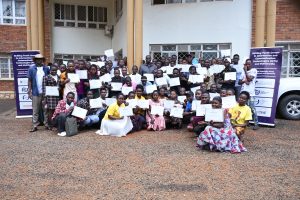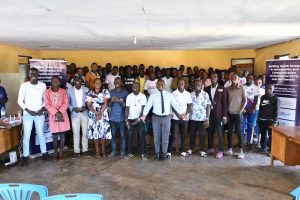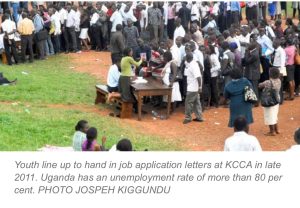OutToLunch: Lasting wealth is through hard work not placing bets
By Denis Jjuuko
There is a young man who told me that he had come up with an innovative idea that may change the world but lacked funding to realize it. I told him that I didn’t work in the angel investment space but he was incessant that I listen to him. All that he needed, he argued, was about 30 minutes of my time. If I listen to him, maybe I could talk to some of my “rich” friends and they invest. I was reluctant but I could easily find the 30 minutes.
Over time and perhaps through personal experiences, I have increasingly become skeptical of “innovations” and great “ideas.” Many such ideas are hard to pull off in a country like Uganda. Also, in the developed world, very few people come up with great ideas. Most entrepreneurs that succeed do what everyone is doing but a little bit better. However, I also didn’t want to spend the rest of my life regretting.
He kept time. Since we are Africans, we asked each other about our respective families, the weather and what is actually “new that side.” The “new” thing on his side was the innovative idea that he had come up with. He said for some time, he has been studying sports betting.
Almost every other English premier league football club is sponsored by a betting company. Every other advert on pay TV platforms is of sports betting or some form of betting. Every little nook around Kampala has some form of sports betting shop or another. Somebody told me that many young people have a betting app on their smartphones.
Indeed, one day, I was walking behind some guards returning from their night duty. I eavesdropped on their conversation. They were talking about a football match that had taken place in Kazakhstan. Of all places. They had placed some bets on the outcome of match in a league in Kazakhstan!
I understood why the young man wanted to pitch his ideas even to people who may not have any capacity to raise any money. Anyway, the young man said that he had spent the last few years involved in sports betting and he thinks he can generate a lot of money. I became attentive, writing down questions at the back of my mind to ask him once he finished his presentation.
Eventually, it became clear that he wasn’t looking for money to invest in a sports betting company. His innovative idea was that he had studied the formula of beating the sports betting companies! Wow! He said if he got money and placed his bets strategically, he would be able to beat them and win.
He explained how he thought the betting companies work and what one needs to do to beat them. I don’t remember the exact formula he explained but I doubted whether one could beat these companies.
I told him that he stood a better chance if he started a betting company instead but he said that is not the best way to make money. Why invest in that when you have realized the formula to beat the “muyindi”? Muyindi in betting language refers to the sports betting companies.
I could tell that he was very disappointed that I couldn’t invest or refer him to my so-called “rich” friends and that I didn’t see how his idea would make “us” extremely wealthy. The last time I heard about him, the stories involved police, court and Luzira Prison.
Anyway, somebody recently claimed that there are some young people whose job is sports betting. Apparently, one is more likely to become wealthy through it than a regular normal job. My argument was that unless you own the sports betting platform, you can’t be placing bets and expecting to become wealthy.
Wealth is through selling goods or services. Gambling has never been known to create lasting wealth for a gambler. How do we stop young people from spending all their time placing bets? We must create sustainable jobs for them while informing them that overnight success only happens in movies. In real life, people sell something in exchange for money. They don’t just place bets on who will score in which minute of a soccer match.
The writer is a communication and visibility consultant. djjuuko@gmail.com











